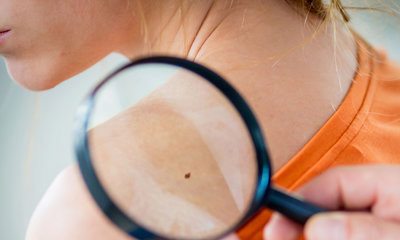
You drink lots of hot beverages.
It might sound odd, but the World Health Organization (WHO) has found evidence that consuming very hot liquids could contribute to the development of esophageal cancer. Researchers believe that the tissue damage that may be caused by sipping scalding beverages may lead to cell injury over time, which could result in cancer.
So how hot is too hot? The science says that drinking beverages over 149 degrees Fahrenheit (65 degrees Celsius) are probably carcinogenic.

























